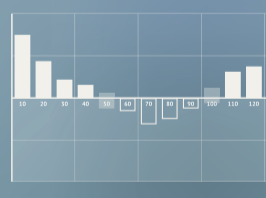Ian Thomson, Joe Gershen & Kevin Kuper – October 27, 2016
West Coast Biodiesel Industry Commentary
In May 2007, British Columbia (BC) and California signed a climate action MOU that set Canada’s westernmost province on the path to a California-style low carbon fuel standard. A decade later, the regulation that resulted may be poised to take Canada up a big notch in the climate action race.
Many know that the BC LCFS is not the only biofuels-related initiative in Canada. Its most populous province, Ontario, and two Prairie provinces, Saskatchewan and Manitoba, have had ethanol mandates since 2007, and in the 2010- 2011 period, the four western provinces all brought in biofuels mandates in diesel and gasoline. Also in 2010 and 2011, the federal government mandated renewable content in gasoline (5%) and diesel (2%) respectively, and by 2015, every province between Ontario and BC had a mandate for renewable content in diesel (ranging from 2-4%).
Canadian biodiesel producers responded by building sufficient capacity to meet the 170 million gallon per year (Mgpy) demand from provincial and federal mandates. But as is the case with Canada’s fossil fuels, cross-border trade in biodiesel and renewable hydrocarbon diesel (RHD) has been substantial. In 2015, US producers shipped 10 million gallons more of biodiesel into Canada than was imported from Canada to the US, and this trend is likely to be maintained.
The relative lull since 2011 in new regulation development appears to be ending. A number of factors are lining up to drive what could be a doubling or tripling of biofuel demand in Canada. The election in October 2015 of a pro-climate action federal government has renewed the call to expand and update renewable fuel standards. Unlike RFS2 and its GHG buckets, Canadian federal biofuel regulations have had no reduction thresholds or renewable biomass criteria.
An example of the pivot to including carbon intensity in biofuels regulations can be found in Ontario. It’s 2015 Greener Diesel regulation has a multiplier that allows obligated parties to use less of a lower carbon fuel, and the draft June 2016 Climate Change Action Plan is calling for a new regulation in the gasoline pool to reduce GHG pollution 5% by 2020. If that proposed Ontario regulation were expanded to the diesel pool from 2020 onward and deeper reductions set for 2025 or 2030, it would double or triple demand in a market with Canada’s largest fuel consumption.
There are also broad calls to update the federal RFS. Canada’s signing of the Paris climate agreement in October 2016 has refocused Ottawa’s hunt for significant GHG reductions. With transportation at 25% of Canada’s emissions, squeezing more reductions out of biofuels is likely to require GHG reduction criteria in regulations going forward. Whether this is in the form of a federal LCFS, or changes to existing biofuel mandates has yet to be determined.
Then we come all the way back to BC. In August 2016, the province announced that it will extend the LCFS to 2030, requiring a 15% reduction below 2010 levels (from the current 10% by 2020). And BC brings us to another trend in Canada: carbon pricing. BC has North America’s oldest scheme, a carbon tax that started in July 2008. Quebec has a cap and trade program, and Ontario has passed the legislation to implement one, with the regulation pending. Alberta has announced a carbon levy, and in October 2016, the federal government announced a carbon tax starting in 2018 that will hit $50/tonne by 2022.
A debate is currently underway in Canada as to the relative value of carbon pricing towards greater adoption of low carbon fuels. Analysis by Advanced Biofuels Canada and others show that carbon pricing’s current structure in Canada is having little impact on incenting lower carbon fuels, and in some cases is actually regressive on carbon (charging higher carbon taxes on low-carbon biofuels than on gasoline or diesel.) With lower-density fuels taxed volumetrically, consumers end up paying more carbon tax than for the fossil equivalent per distance travelled. And the structure of BC and Alberta carbon taxes sees B20 and E85 blends taxed at the same rate as diesel and gasoline. This clearly remains an area where regulatory change is required to align GHG reduction goals with the rules and tax codes to realize the reductions.
The months ahead will see decisions on the format of fuels policies, and their targets. Will Canada develop a RIN-style registry? Will it have a 2030 LCFS with CA-level targets? Provincial and federal governments will grapple with balancing support for a hard-hit upstream oil sector and support for renewables, and gaining agreement on shared actions across the confederation of provinces and territories with widely ranging economic realities and political orientations. Translating the surge in announcements on fuels-related climate action into stringent new regulations may drive new demand, but other actions are needed to ensure that Canada builds and operates competitive domestic production capacity in the face of US support for its biofuels industry. Keep an eye on Canada in 2017.

